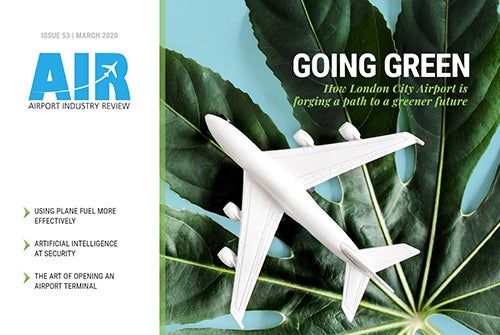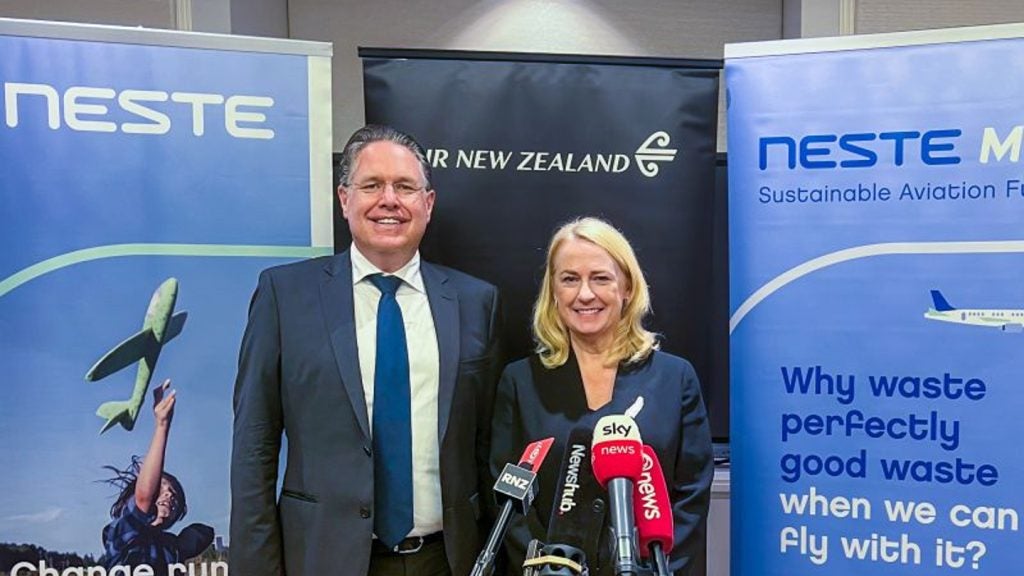
Airport Industry Review is back for another issue packed with technology news and industry analysis. In this issue, we find out how London City Airport is trying to set a carbon-neutral example for other airports to follow, discuss the use of artificial intelligence at airport security, and ask how airports and airlines can use fuel more effectively.
Whether you are on a desktop, tablet or smartphone, you can read the magazine for free online.
In this issue
Emission statement: inside London City Airport’s environmental strategy
London City Airport was recently awarded Level 3+ (Neutrality) status from the Airport Carbon Accreditation scheme in recognition of its efforts to cut emissions in every facet of its business. Julian Turner talks to the airport’s head of environment and technical operations, Tessa Simpson.
The Red Sea Airport: designing a new luxury airport in Saudi Arabia
How well do you really know your competitors?
Access the most comprehensive Company Profiles on the market, powered by GlobalData. Save hours of research. Gain competitive edge.

Thank you!
Your download email will arrive shortly
Not ready to buy yet? Download a free sample
We are confident about the unique quality of our Company Profiles. However, we want you to make the most beneficial decision for your business, so we offer a free sample that you can download by submitting the below form
By GlobalDataBritish architect firm Foster + Partners has been awarded a design contract for Red Sea International Airport in Saudi Arabia. The airport is set to serve one million passengers by 2030, and is part of the countries ‘Red Sea Project’ which aims to create a new luxury tourism destination in the coming years. Alex Love speaks to Foster + Partners to find about what they aim to achieve in this project, the unique considerations involved with developing a project in this region.
NATS Intelligent Approach: using runways efficiently
Thanks to innovative technology, Britain’s busiest airport has been able to operate more efficiently during challenging conditions. Now other major air passenger hubs like Schipol are looking to take advantage of NATS’ Intelligent Approach. Andrew Tunnicliffe speaks to NATS head of queue and capacity management solutions Andy Shand.
Refuelling aircraft: can more be done to save carbon and cut costs?
A recent investigation by BBC Panorama revealed that some airlines still adopt unsustainable fuelling strategies in order to save money. With renewed pressure on the industry to become carbon-neutral, how can greater fuel efficiency be achieved? Adele Berti reports.
Is it right to use artificial intelligence in aviation security?
HEXWAVE, a new security imaging system supported by artificial intelligence (AI), will soon be tested in aviation. The Greater Toronto Airports Authority plans to conduct a week-long trial at Pearson International Airport. The Authority’s Dwayne MacIntosh tells Andrew Tunnicliffe of why he hopes the trial will be a success and why AI shouldn’t be feared.
The art of opening an airport terminal
New Orleans’ Louis Armstrong airport’s new $1.3bn terminal was hit by long queues and delays when it opened in early November. The airport’s experience is hardly unique; opening a new terminal is a fraught process at the best of times, and many high-profile air hubs have fallen victim to chaotic terminal openings. What can be done to avoid future disaster? Adele Berti finds out.
Timeline: the history of airport body scanners
Body scanners have been in use at airports for less than 20 years yet they still spark controversy when it comes to privacy and social injustice issues. Adele Berti takes a look at the main events that defined the development of body scanners, the role they play now and how they’re evolving to meet new demands.
From launching airlines to sustainability: the potential of crowdfunding for aviation projects
Crowdfunding has never been particularly popular in aviation, but with many small airports and airlines often struggling to get financial support, could it become the solution to lack of funds and to what extent can the industry appeal to the loyalty of its customers? Adele Berti takes a look at crowdfunded aviation projects to find out.
Next issue preview
In the next issue of AIR, we take a closer look at the impact of coronavirus on airports and ask how new scanning technology can help prevent the spread of diseases worldwide.
We’ll also ask whether airlines’ migration from four-engine aircraft to two-engine aircraft could affect airports in the future, and speak to a roundtable of aviation experts about existing threats to cybersecurity.
Also next time, we take a closer look at pay and conditions for the UK’s baggage handlers, ask whether US sanctions on other countries are disrupting global aviation, and find out whether translation technology – such as Google Assistant’s Interpreter Mode solution being trialled at New York’s JFK Airport – could become more commonplace across the industry.
Finally, we unleash a reporter to speak to the ‘Canine Crew’ at the UK’s Southampton Airport, which aims to put nervous fliers at ease by distributing ‘therapy dogs’ throughout its terminal.
Would you like to be notified when a new issue of AIR is out? Sign up for email alerts here. We will only use your email address to let you know when a new issue is available. AIR is published monthly.





